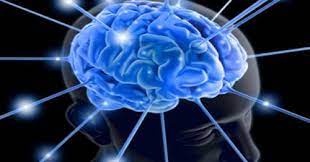Creutzfeldt-Jakob disease, also known as subacute spongiform encephalopathy, is a degenerative brain disorder that leads to dementia and death and is caused by a protein called a prion.
Creutzfeldt-Jakob disease can occur spontaneously, be hereditary, or be transmitted by contact with infected tissue, for example, during a transplant or by eating contaminated meat. A prion causes normal proteins to fold abnormally. This affects the ability of other proteins to function.
The most frequent route of transmission is exposure to tissues and fluids from the brain and spinal cord, although the cause is usually unknown. The possibility of suffering from this disease is 1 to 2 people per million.
CLASSIFICATION:
Creutzfeldt-Jakob disease is classified by its mode of acquisition into four types:
Sporadic, iatrogenic or acquired, familial and variant.
SYMPTOMS:
Amnesia, confusion, dementia, inability to speak or understand words, delirium, disorientation or lack of concentration, rhythmic muscle contractions, slow body movement, muscle spasms, coordination problems or overactive reflexes, anxiety or apathy, hallucination or depression, changes in personality, insomnia, involuntary and rapid eye movement or blurred vision.
TREATMENT:
Treatment can help and is aimed at relieving pain and symptoms. But this condition has no cure, it can last for years or a lifetime. It requires a medical diagnosis from laboratory analysis or diagnostic imaging studies.
The history of Creutzfeldt-Jakob Disease (CJD) begins in 1920 when Hans-Gerhard Creutzfeldt described a middle-aged patient who developed subacute cognitive-motor impairment, whose neuropathological study showed degenerative changes in the CNS.
Prion diseases occur in sheep, goats, cattle, elk, deer, mink, and cats. Depending on the disease, they can be transmitted from one species to another when an animal does the following: Eats an infected animal.
Prions can be transmitted through contaminated food, surgical instruments, and blood. Prion transmission has caused the kuru epidemic in humans and bovine spongiform encephalopathy in cattle, which in turn has caused variant Creutzfeldt-Jakob disease in humans.
Death from Creutzfeldt-Jakob disease usually occurs within about 12 months. Death derives from medical problems associated with the disease, such as: falls, heart problems, difficulty swallowing, lung failure, pneumonia or other infections.
So far there is no effective treatment for Creutzfeldt-Jakob Disease, so it is advisable to prevent the disease.
https://www.saludcastillayleon.es/es/enfermedades-problemas-salud/enfermedad-creutzfeldt-jakob








